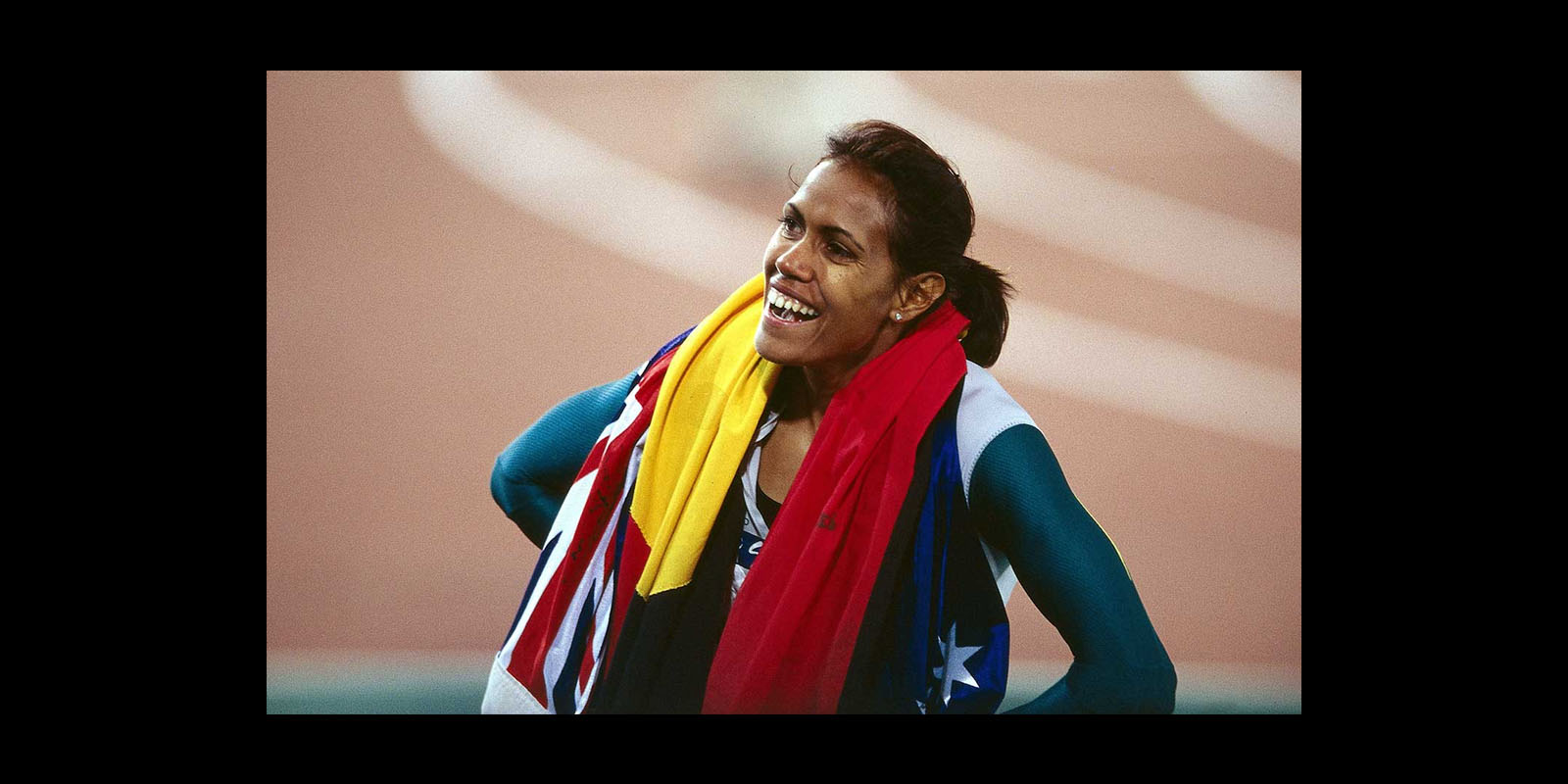Cathy Freeman, born in Mackay, Queensland, is part of the Kuku Yalanji people of far north Queensland through her mother and the Burri Gubba people of central Queensland through her father.
Freeman joined athletics at a very young age under the guidance of her step-father, winning her first race at only eight years old. By the time she turned 14 she had won national titles in the high jump, and the 100, 200 and 400 metre sprints.
In 1990, at the age of 16, she became the first-ever Aboriginal Commonwealth Games medallist after the Australian relay team she was a part of came first in the 4x100m relay at the Commonwealth Games in Auckland, New Zealand.


Image: Cathy Freeman carrying both flags after the 400 metres at the Sydney Olympics. Source: National Museum Australia.
1994 Controversy
In the 1994 Commonwealth Games in Canada she won double gold however that was overshadowed by the controversy that followed her 400m win after she chose to carry both the Australian and Aboriginal flags.
Many deemed this to ‘political’ and this was further pushed by Australia’s Chef de Mission for the games, Arthur Tunstall, who issued a statement in which he publicly reprimanded Freeman stating ‘She should have carried the Australian flag first up, and (we should have) not seen the Aboriginal flag at all’.
Others however saw it as an act of reconciliation and celebrated this moment. In her biography, Cathy: Her Own Story, Freeman stated that
‘I wanted to shout, ‘Look at me. Look at my skin. I’m black, and I’m the best.’ There was no more shame’
Following this, Cathy Freeman competed in the 2000 Sydney Olympic Games Freeman and was given the opportunity to light the Olympic flame at the opening ceremony. She won gold in the 400m and again carried both the Aboriginal and Australian flags despite being warned against it.
Sources
- Defining Moments: Cathy Freeman, National Museum Australia
- Cathy Freeman, Britannica
- AMAZING GRACE, Runners World
- Cathy Freeman, AIATSIS
- Cathy Freeman was warned not to carry the Aboriginal flag at the Olympics, Guyana Chronicle
